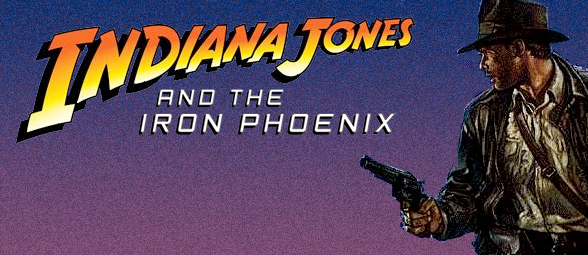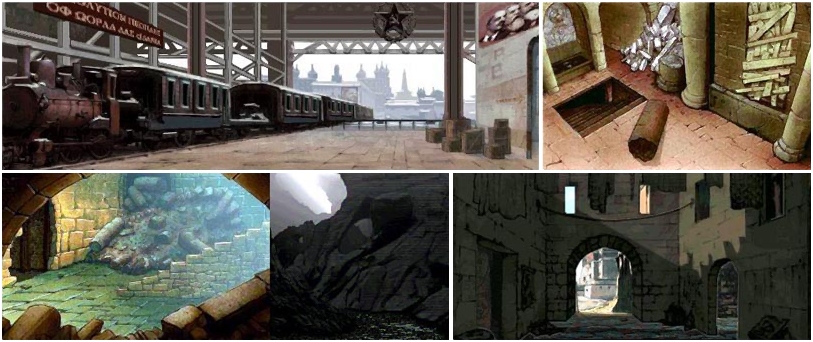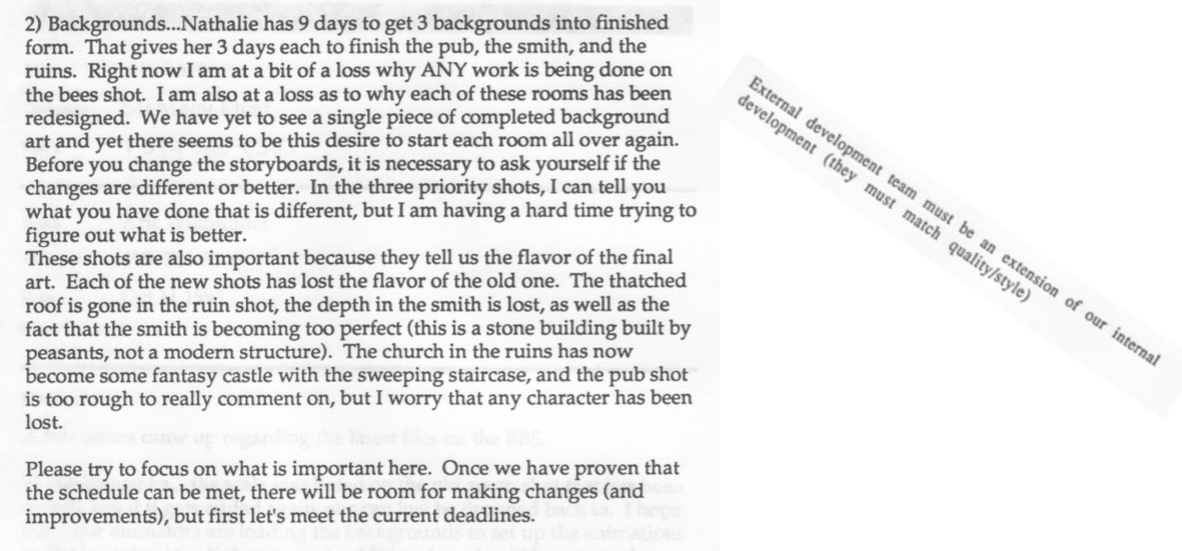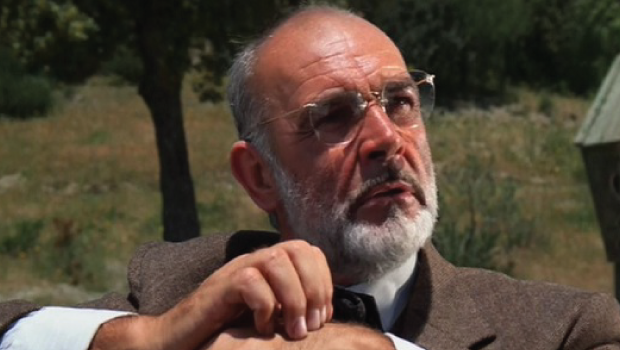- Page 1 After Fate of Atlantis
- Page 2 A Post-War Indy
- Page 3 Design Interrupted
- Page 4 Programmers and Palettes Stretched Thin
- Page 5 Blame Canada
- Page 6 "Our situation has not improved."
- Page 7 A Comic Consolation Prize
- Page 8 "It belongs in a museum!"
- Page 9 Resources, Sources, and Thanks
- Page 10 But wait! There's more.
Articles

Indiana Jones and the Iron Phoenix: The Lost Sequel to Fate of Atlantis Blame Canada
These issues, while no doubt thorns in the project’s side, would certainly seem to fall under the category of surmountable. If any one thing doomed Iron Phoenix, it would be the fateful decision by LucasArts to make the game a guinea pig. The experiment: Outsourcing. I'll let Aric set the scene, which requires some background.
A bit of LFL history. I got to know the team when I was at Atari Corporate Research & Atari Coin Op. Peter Langston (the first head of the LFL team) came through with a small team from LFL when they were working on what became known as Ballblazer & Rescue. I had written or called Peter once or twice, but by the time I joined LFL he had been replace by Steve Arnold (background - Child Psychologist). I don’t remember the order exactly, but other LFL presidents included Doug Glen (Marketing background - When we were developing Secret Weapons of the Luftwaffe, Doug jokingly suggested ‘We put the Hit in Hitler’ as a marketing line) Kelly Flock, I think that Kelly came from EA and liked to shake things up, so I think of him as a bit of an anarchist. There was also Randy Komisar, who is now a VC for tech firms in the valley. About every 2 years, another president would get instated. Finally, there was a finance guy, I can’t even remember his name now. Story was that he had managed a small punk rock band somewhere. He made the decision that research was a waste of money and budgets were not only the highest priority, they were the only priority. I was head of the tools team at the time so I researched ways for LFL to increase revenue and read some white papers from HP and Xerox about revenue and found that 70% of their revenue was from international. At LFL, it was only about 20%, so I decided that this was a way to move out of an area that was frowned upon and I built a small team that eventually generated over 50% of the company’s revenue.
I may have been working on the design when this president joined the company, but we were approached by a Canadian company. They had tax incentives if they could develop new industries they could write off the costs, so they approached our President and said that they could fund one of our games, if the development was done in Montreal. This looked great to a finance guy, but he didn’t understand that this wasn’t sausage being cranked out through a meat grinder, you needed teams with experience and talent. Bill and I tried working with these guys, went to Montreal on a number of occasions, but the only thing the team had ever built was an ice hockey game. Building an adventure game was beyond their skill set. I’d come home discouraged and I remember how these guys chain smoked and so my clothes smelled like an ash tray when I’d get home.
- Aric Wilmunder


I have reason to believe that the Montreal-based company Aric refers to is Strategy First, and that the president that brokered the deal was actually future president Jack Sorenson, who at the time was serving as Head of Business Operations. (For the history buffs, LucasArts didn't officially have a president until Randy Komisar, whose term was from November 1993 to May 1995. His appointment came after the lengthy restructuring process that divided Lucasfilm into three different companies.) The revolving door of presidents that Wilmunder describes is a pattern that fans would notice from the outside as well, and it was a tradition that would continue reliably until the studio's shuttering.

At any rate, the Montreal studio successfully seduced the LucasArts brass, who signed on the long-distance contractor to see Iron Phoenix through production. But it was Wilmunder and the rest of the internal team who were left to grapple with the reality of what seemed to their bosses a slam dunk idea in theory. This despite the limited experience LucasArts had supervising external teams at the time, and the zero experience they had doing it with a graphic adventure. Aric's concerned first impression of the team would not get mollified over time:
I wasn’t sold at the beginning, but when you want to build a game, you dismiss your concerns and look for the best way to move forward. There were a number of warning signs, including that we never really saw any animation coming from them. They had sold management on the project with one piece of animation, but I suspect that that animator may not have actually worked for them. We had also set up test scripts for them to start working from, but again, we never saw any progress. They were always ‘working’ on staffing up, but when Bill and I flew out there, it was just a handful of guys in a smoke filled building and it was pretty clear that a number of them were working on other projects.
- Aric Wilmunder

Strategy First has continued to operate primarily as a publisher. In that capacity they have earned a dubious reputation for denying royalties owed to studios whose games they've distributed.